When the world’s science writers gather in Switzerland
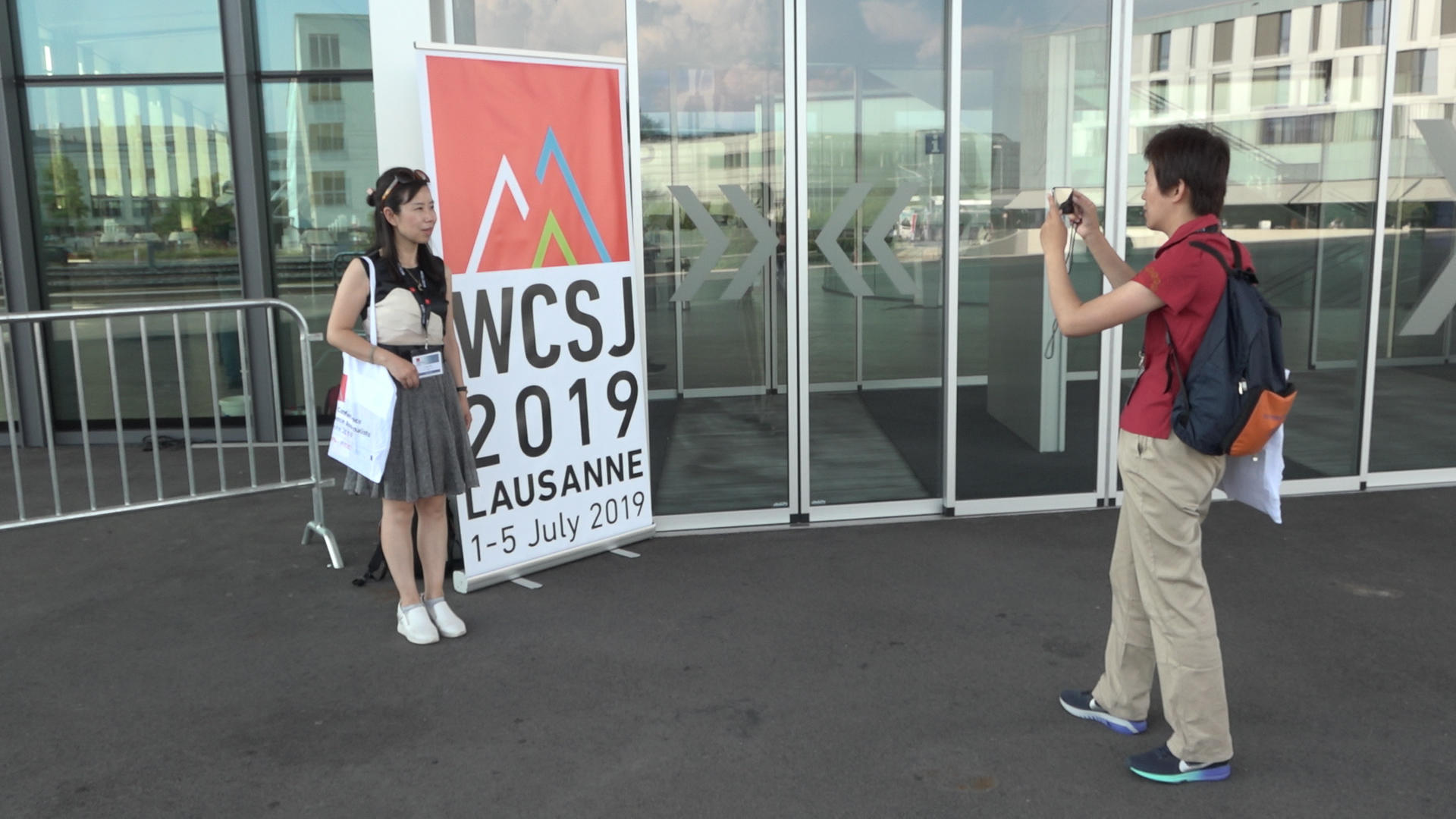
The World Conference of Science Journalists is underway this week in Lausanne, designed to strengthen the professional, ethical and technical skills of reporters from all over the globe. What do the visitors from abroad think of Swiss contributions to science?
This year’s event (WCSJ2019External link) is being held at the EPFL, the Federal Institute of Technology in Lausanne. Attendees from all over the world shared their impressions of Switzerland’s role in scientific research:
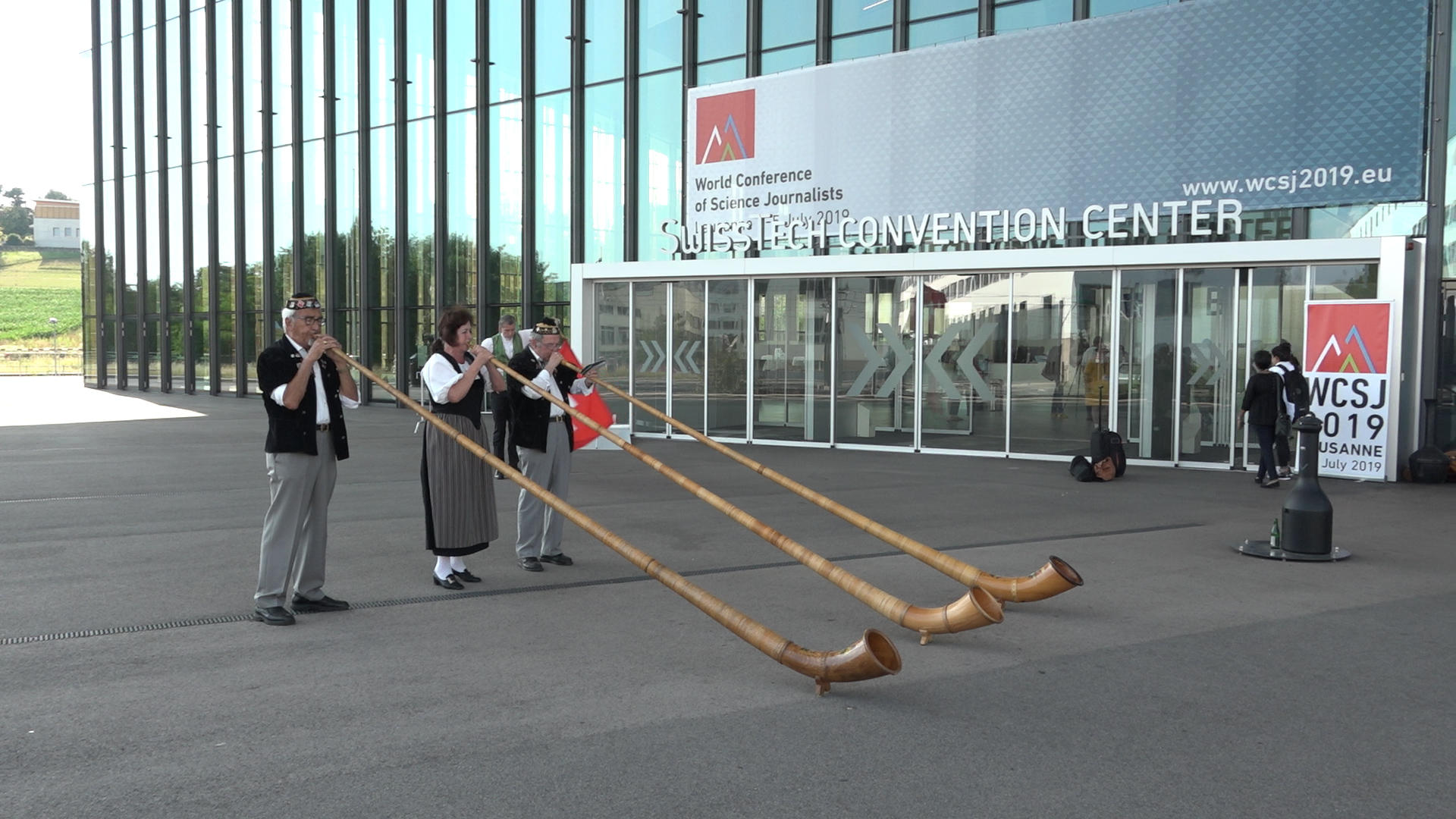
More
What foreign reporters think of Swiss science
Several attendees told us more about their work and special areas of interest.
The guy who made science sexy in Cameroon
Stephane Kenmoe is a researcher and TV science expert from Cameroon. He now works as a physicist in Germany, where he got his PhD.
“I’m also a science communicator,” he says. “I want to boost the scientific culture in Cameroon, where people aren’t very enthusiastic about science.”
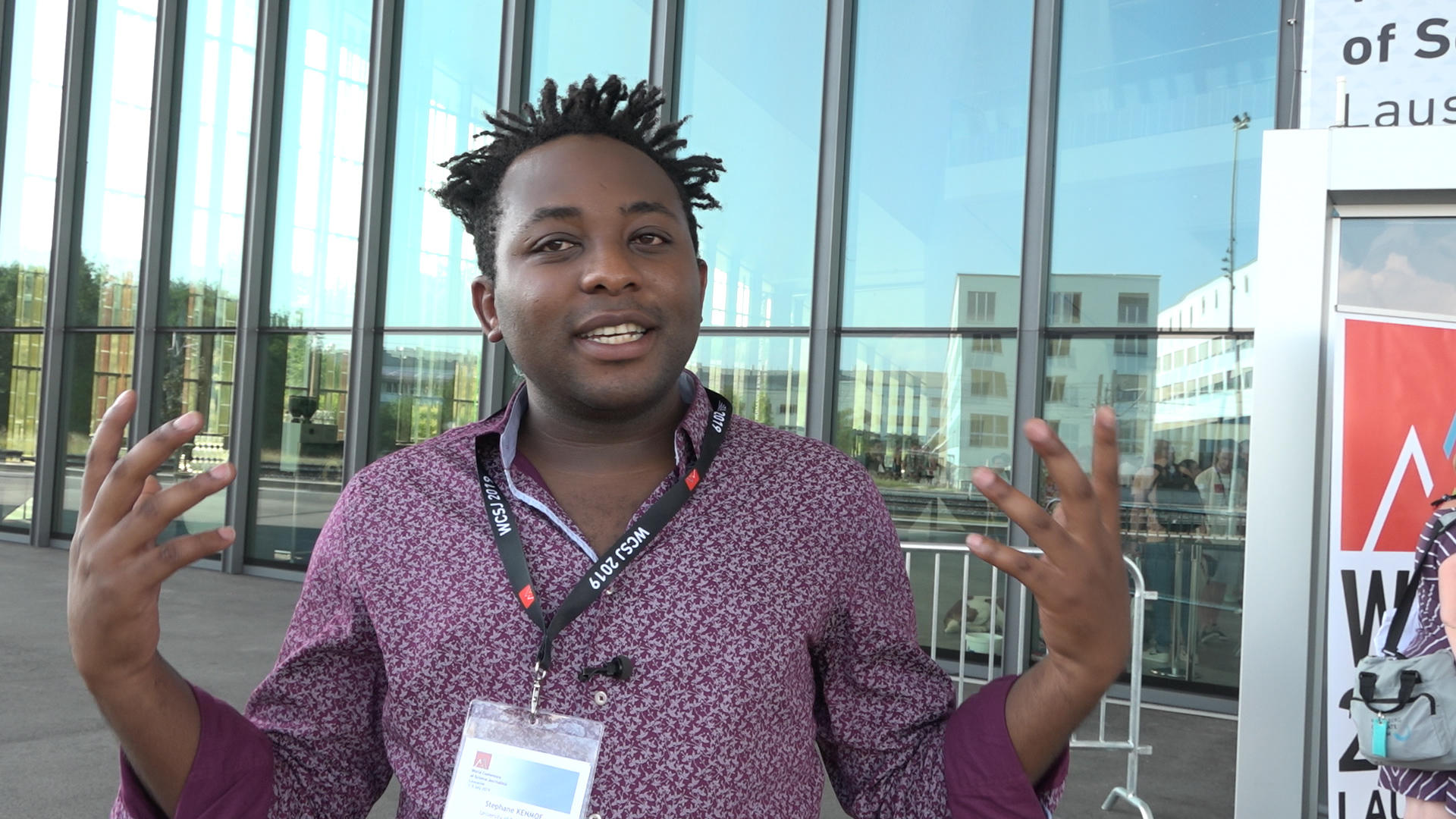
He points out that many developing countries suffer from a lack of scientific culture, so he “decided to popularise science” by becoming a TV personality.
“Three years ago I started talking on TV, joining programmes alongside comedians, musicians, sports stars, competing to be the top act,” he explaines. “When I go home to Cameroon on holiday, I’m on TV.”
He also sends videos recorded in Germany to Canal 2External link in Cameroon for publication.
“Loads of them went viral and parents told me I had changed the way they regard science,” Kenmoe says, adding that there is little room for science advocacy in Africa and he is trying to get politicians’ attention on the issue.
“I try to make science fun. Look at my hair – this is not what scientists normally look like!”
The freelance science journalist
Keridwen Connelius is a freelance journalist and editor from Phoenix, Arizona in the US. She has written for publications such as Scientific American and The Economist and edits for the anthropology publication Sapiens.
“I get very little sleep and work every day but I enjoy it,” says Connelius, who has a bachelors degree in psychology and a masters in journalism.
“I graduated at the time of the recession and it was a very difficult time to start my career, but I found that going to conferences was a huge help, especially those with pitch fests, where I could pitch to editors in person and network.”
Her areas of specialty include writing about cancer, autism and the microbiome, as well as some environmental reporting.
“I’m interested in how science offers solutions to society’s problems,” Connelius says.
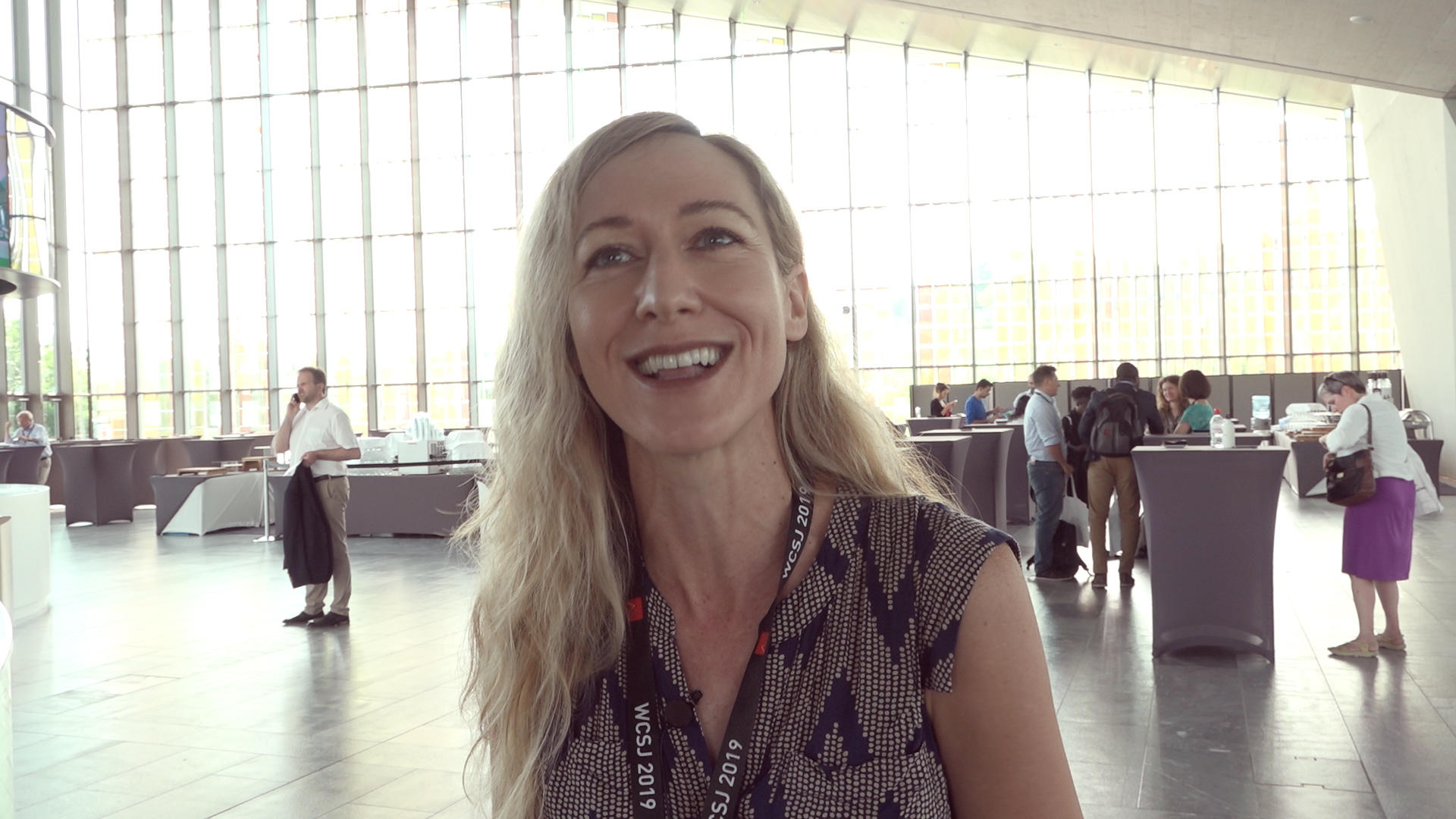
Spaced out in Panama
Maria Gabriela Alvarado is from the National Secretariat of Science, Technology and Innovation (SENACYTExternal link) in Panama.
Her countrymen and women are “particularly interested in health and space,” she says.
“I’m interested in finding out more about how to communicate innovation and make it accessible for the people in my country, because we have big programmes and funding for that.”
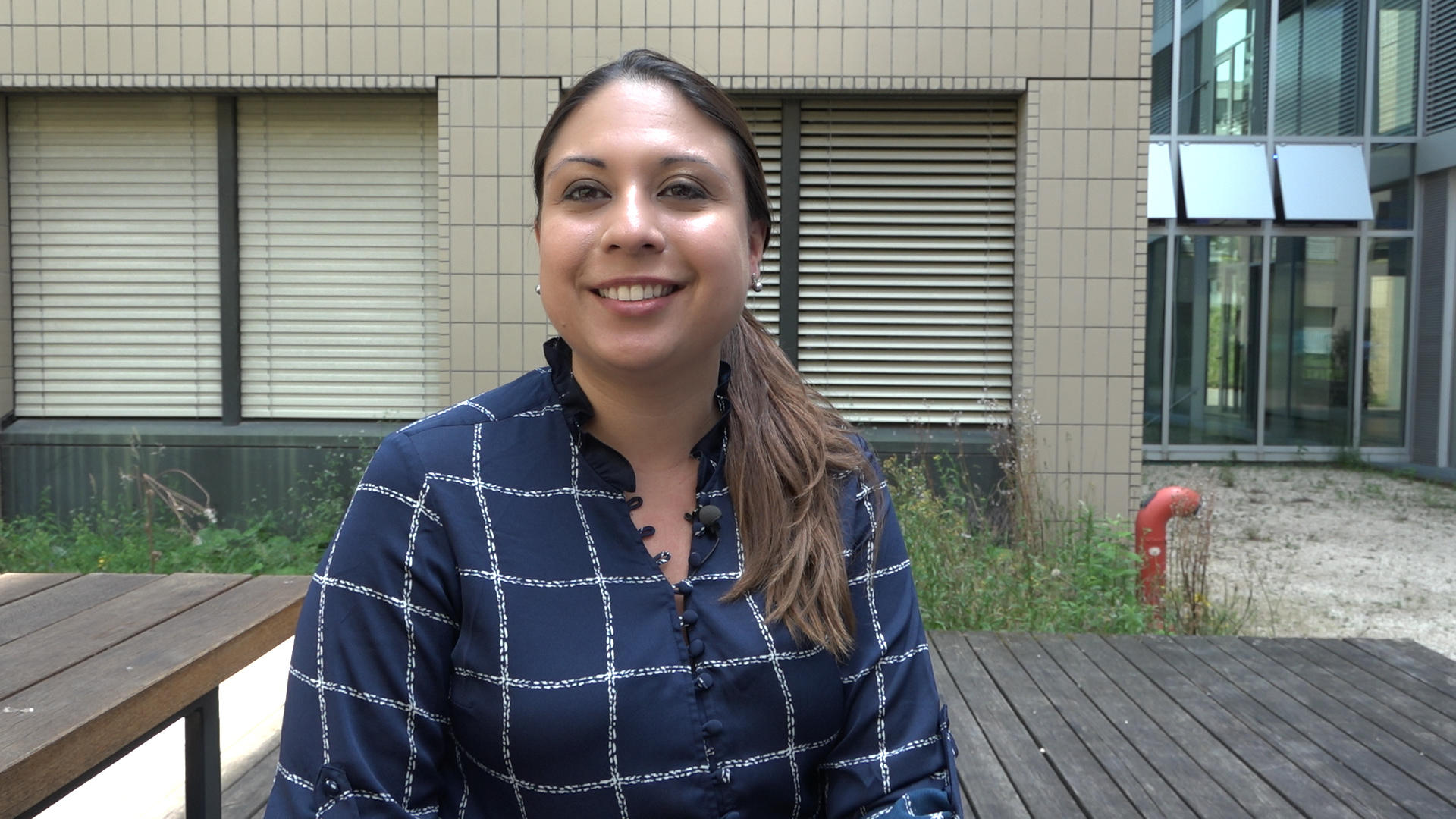
What the Japanese could learn from the Swiss
Mariko Takahashi Kawada writes for one of Japan’s leading daily newspapers, the Asahi ShimbunExternal link, where she’s been working for 35 years. She is a WCSJ aficionado, having attended all ten conferences, the first of which was in Tokyo. She studied physics and wrote a book about gravitational waves, but she now reports on “all types of science and medical news”.
“I’m especially interested in scientific fraud and the challenges of being a woman science journalist,” she says. “I think in Japan we are not very good at promoting start-ups. The Japanese government should ask Switzerland how to do it!”
The scientist who set up his own magazine in Colombo
Dilip Kumar Fernando set up Sri Lankan Scientist magazineExternal link with a university colleague four years ago as a hobby and now says it is the most widely circulated science magazine in Sri Lanka. The articles are mostly research- oriented, covering different science areas.
“We wanted to make a platform for researchers so they can share their findings among all the other scientists,” he says.
On a tour as part of the conference he discovered several Swiss innovations that he wants to feature in his publication in order to encourage scientific collaboration.
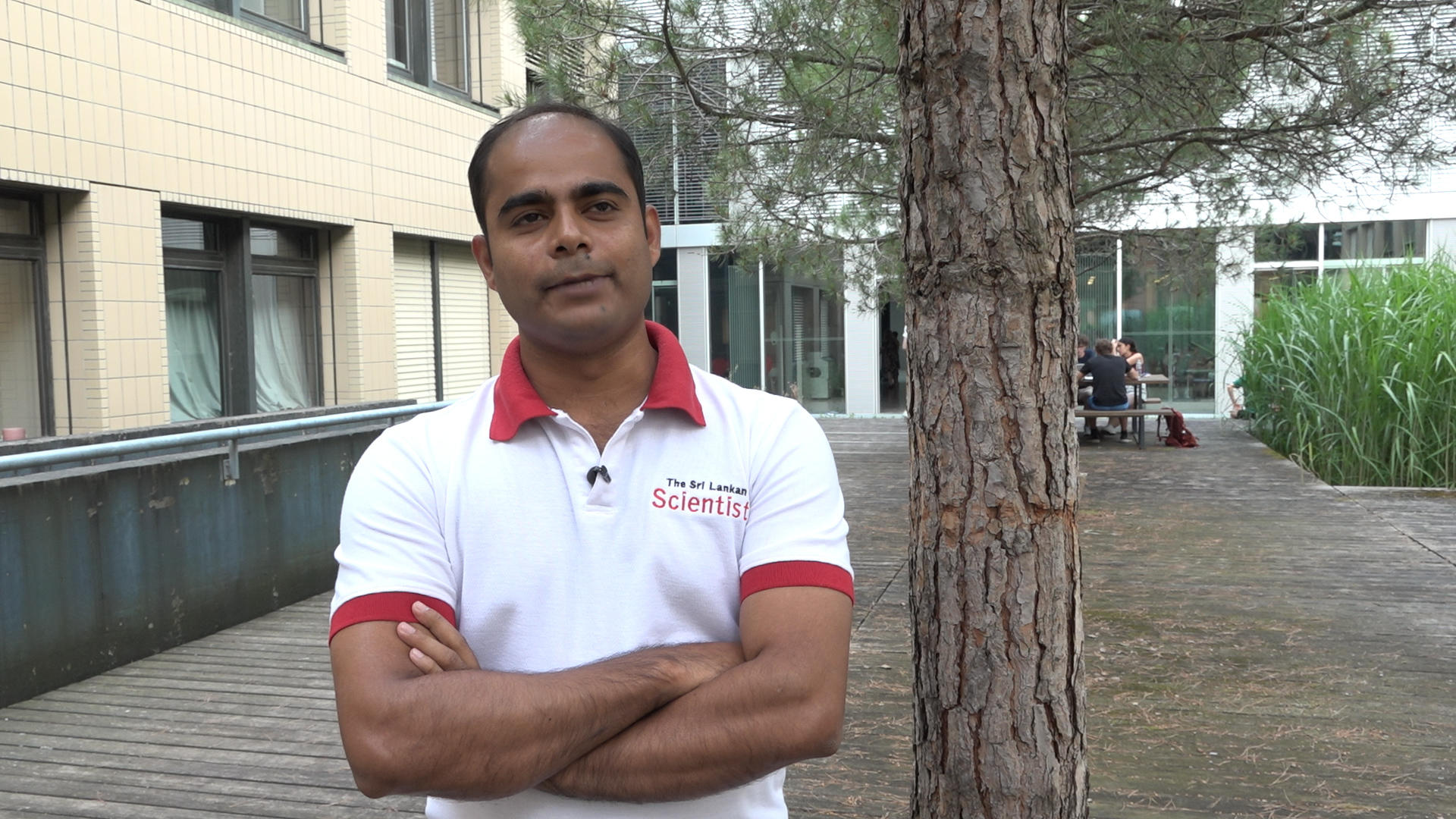
Giving science journalism a boost in Africa
Caroline Lachowsky is a radio journalist RFI FranceExternal link who produces a one-hour programme on science three times a week.
“I’m interested in meeting African science journalists,” she says. “I’m asking them, ‘How can we develop scientific journalism in French-speaking Africa?'”
She points out that Africa is a difficult place to be a scientific reporter, but many good journalists do it all the same.
“They cover important issues like the environment, mobility, health. They are not listened to, not helped, but they are all doing it very well.”
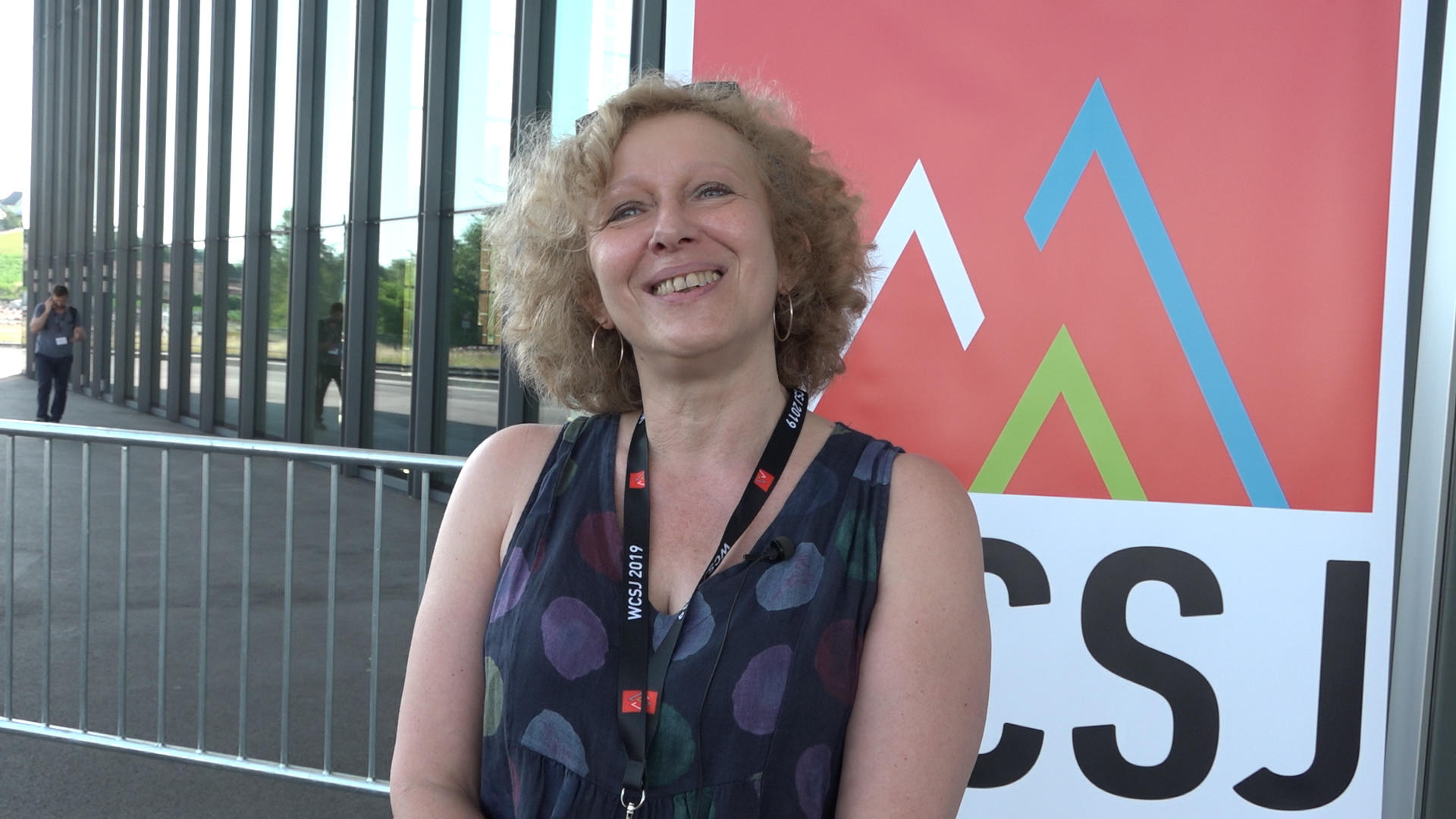
Indians like stories about space, climate and weather
Tejonmayan Udayasankar from The Times of IndiaExternal link covered crime for eight years before starting to do a few science stories and developing an interest in it.
She specialises in ocean research and space science.
“India is launching a rocket to the moon on July 15, so it’s a more relevant topic for us,” she says, adding that Indian readers are very interested in space topics.
“They are also keen on stories about climate change and meteorology. They may not know the science behind it but they really care about the weather!”
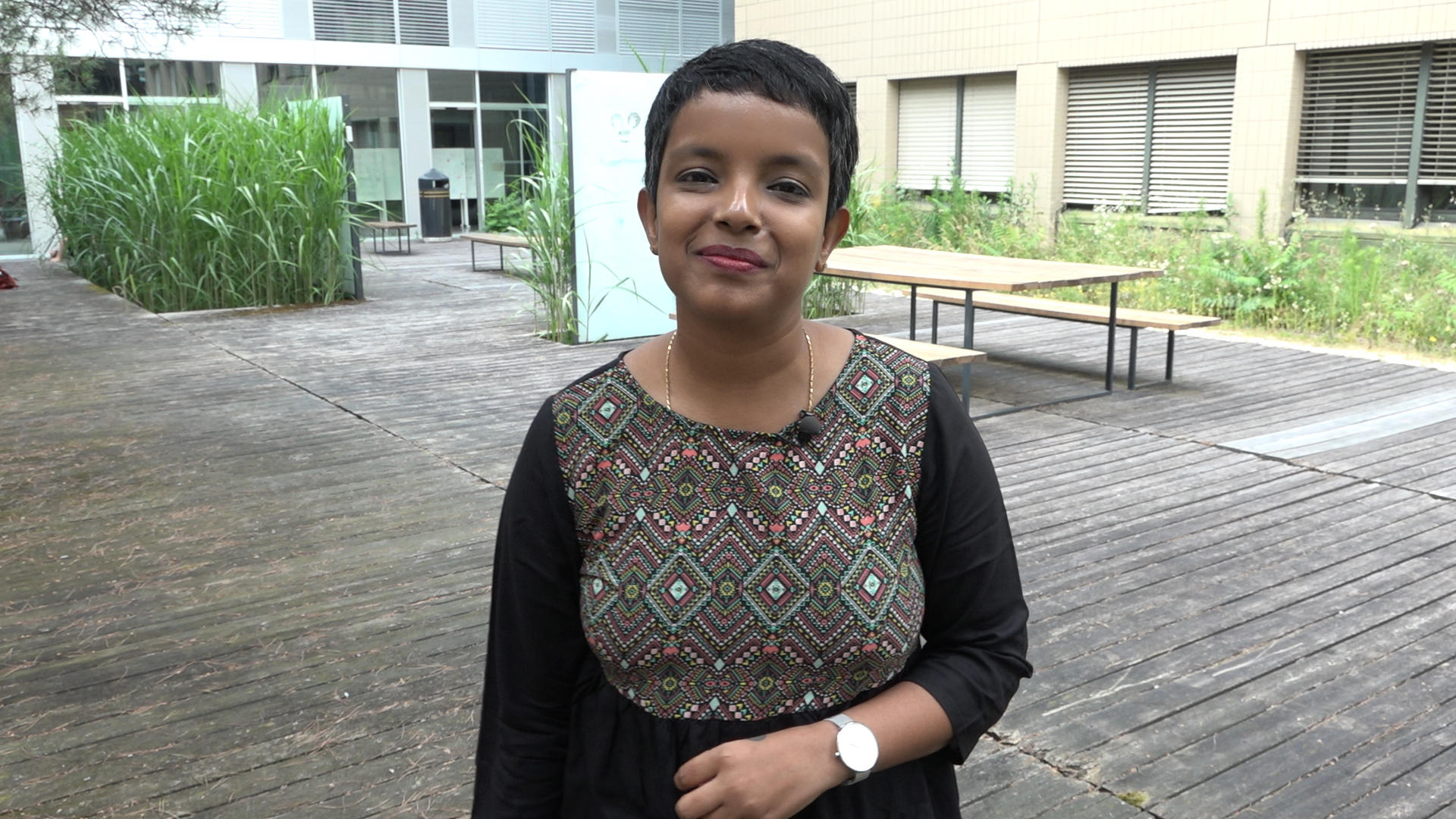
‘Journalists need to beware of exaggerated claims by scientists’
Francis Kokutse is a freelance journalist from Ghana who works mainly for sciencedev.netExternal link. He has been a science reporter for three years, switching over from business coverage because he suddenly grew interested in food storage and its effects on health.
“I’m interested in science and communication and how journalists could report better and become more wary of exaggerated claims by scientists,” he says. “Online science portals are publishing stories that are false. They are only interested in the number of clicks they get so they can make money.”
He puts great stock in traditional media, which he says have a lot to lose when it comes to reporting falsehoods.
“If they publish a false story, it is condemned and they lose readership. So they really try to play it fair.”
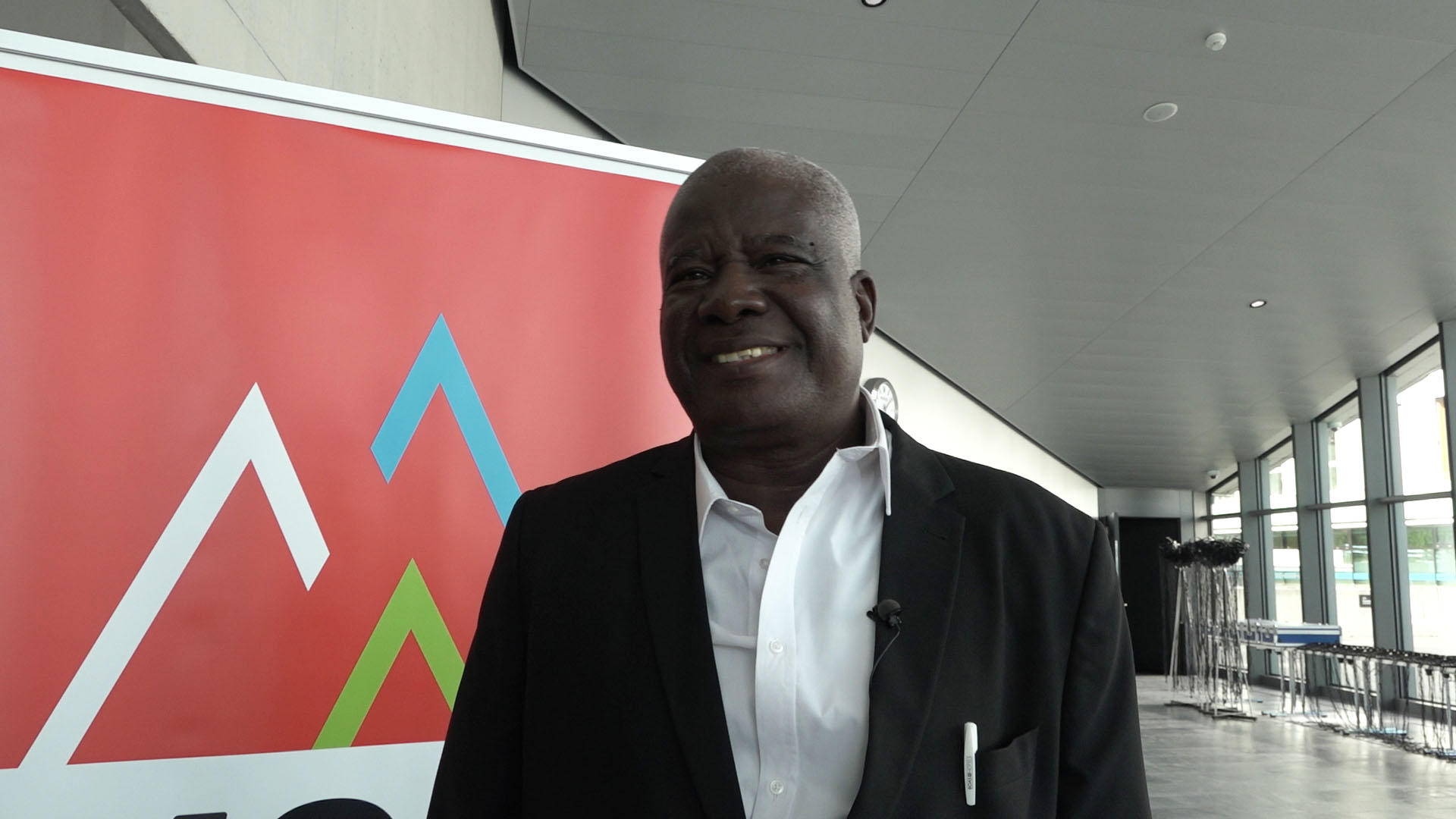

In compliance with the JTI standards
More: SWI swissinfo.ch certified by the Journalism Trust Initiative
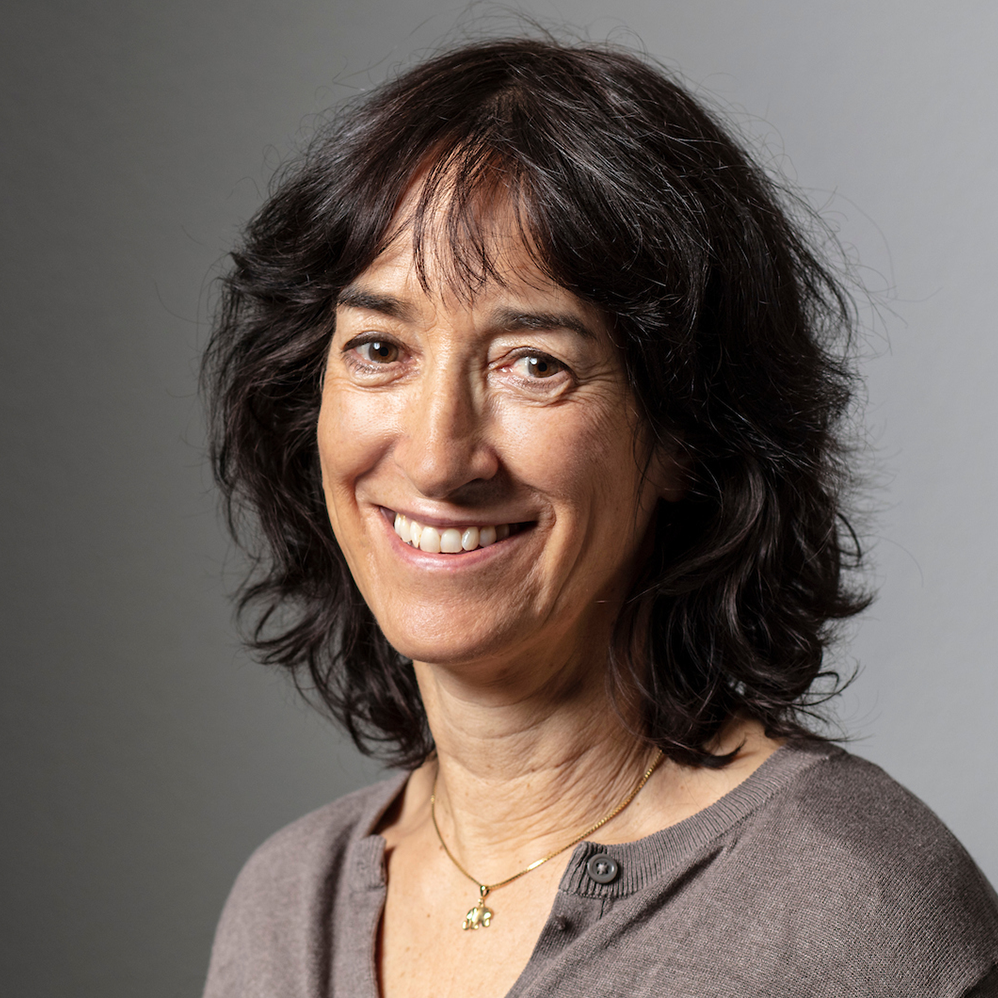
You can find an overview of ongoing debates with our journalists here. Please join us!
If you want to start a conversation about a topic raised in this article or want to report factual errors, email us at english@swissinfo.ch.